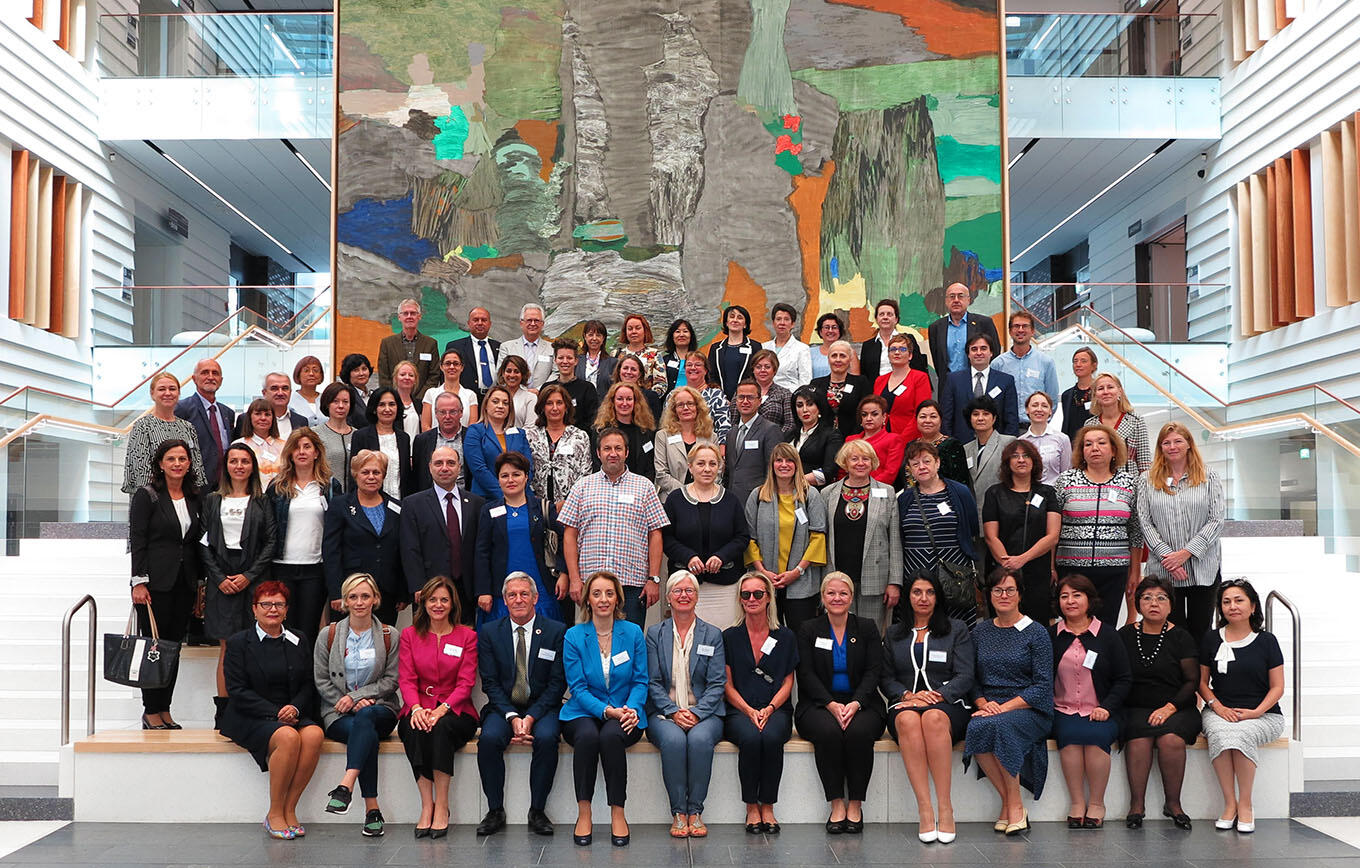STOCKHOLM — Representatives of all countries in the Eastern Europe and Central Asia region came together in Stockholm on 30–31 August 2018 to further develop and implement national policies and action plans to ensure universal access to sexual and reproductive health and rights.
Improving the health and well-being of women and their families is essential for the future of the region, UNFPA Regional Director Alanna Armitage told the participants in her welcoming remarks at the Stockholm event.
“When women and girls can fully exercise their rights, can make informed decisions about their bodies and are empowered to shape their own lives, society as a whole reaps the benefits,” Armitage said. “This will bring us one big step closer to realizing our goal of creating a fully inclusive, just and prosperous European region by 2030.”
The two-day consultation, “Accelerating Progress in Improving Sexual and Reproductive Health in Europe,” was supported by the Government of Sweden and hosted by the Public Health Agency of Sweden and Karolinska University. It marked the second meeting devoted to the implementation of the region’s first-ever Sexual and Reproductive Health Action Plan, which was developed within the framework of UNFPA’s Joint Programme with the World Health Organization (WHO) Regional Committee for Europe. The first consultation on the Action Plan was held in Tbilisi, Georgia, in March 2016.
Sharing successes and challenges
The 80 participants from 21 countries who came together in Stockholm included policy-makers, experts and professionals who shared their successes, challenges and lessons learned in the process of delivering universal access to sexual and reproductive health and rights (SRHR). They also learned about the latest evidence and new tools for implementing impact-oriented, human-rights-based national SRHR polices, including the outcomes and recommendations of a procurement-gaps assessment carried out as part of the UNFPA Regional Contraceptive Security Strategic Framework.
Joining UNFPA’s Armitage in opening the consultation were Bente Mikkelsen, director of the Division of Noncommunicable Diseases and Promoting Health through the Lifecourse at the WHO Regional Office for Europe; and Niclas Jacobson, Deputy Director-General of the Swedish Ministry of Health and Social Affairs. An expert panel featuring Ulrika Karlsson, a member of Sweden’s Parliament and the president of the European Parliamentary Forum, and Ian Askew, director of the Department of Reproductive Health and Research at WHO Headquarters, then set the stage for the consultation on delivering universal access to sexual and reproductive health and rights in the new development environment.
During the consultation, participants worked to flesh out the priority actions needed in their own countries to accelerate implementation of SRH policies, strategies and programmes at the national and regional levels, and to identify where they will require further technical support and guidance.
“Having this meeting at this point in time was very important given all the activities that need to be carried out at the local, national and international level in order to achieve the SRH-related Sustainable Development Goals,” said participant Dr. Danijela Urošević, the Assistant Minister for EU Integration and International Cooperation in the Ministry of Health of the Republic of Serbia. “This interesting, interactive and productive meeting has left us all with a lot of homework to do in the coming months.”
‘Change is within reach’
In her welcoming remarks, UNFPA’s Armitage noted the progress that has been made in the region, including dramatic drops in maternal mortality and adolescent pregnancy in most countries, while pointing out the inequalities that still persist between different population groups and other ongoing challenges. These include a high unmet need for family planning, limited comprehensive sexuality education for young people, a high rate of cervical cancer diagnoses and deaths compared to Western Europe, and a rapidly rising rate of HIV.
“But change is within reach,” Armitage emphasized. “Using the Sexual and Reproductive Health Action Plan as a framework, countries in the region are developing and implementing comprehensive national programmes to address the burning SRH challenges we still face.”
With UNFPA and WHO support, Albania and Georgia adopted new national SRH strategies in 2017. They were followed in May 2018 by the Republic of Moldova, which adopted and allocated budgets for the implementation of its National Programme on Sexual and Reproductive Health and Rights. Both the former Yugoslav Republic of Macedonia and Serbia endorsed their own national programmes in September, and Azerbaijan is in the process of doing the same.
“The political and societal context for making the bold changes we need is becoming ever more complex and we are seeing regression in law and policy in some countries,” Armitage said at the Stockholm event. “But I’m confident that when we meet again for our next consultation in two years, we will have made breakthroughs in reducing inequalities and making universal access to sexual and reproductive health a reality. It is a tall order, but I believe we are on the right track.”





